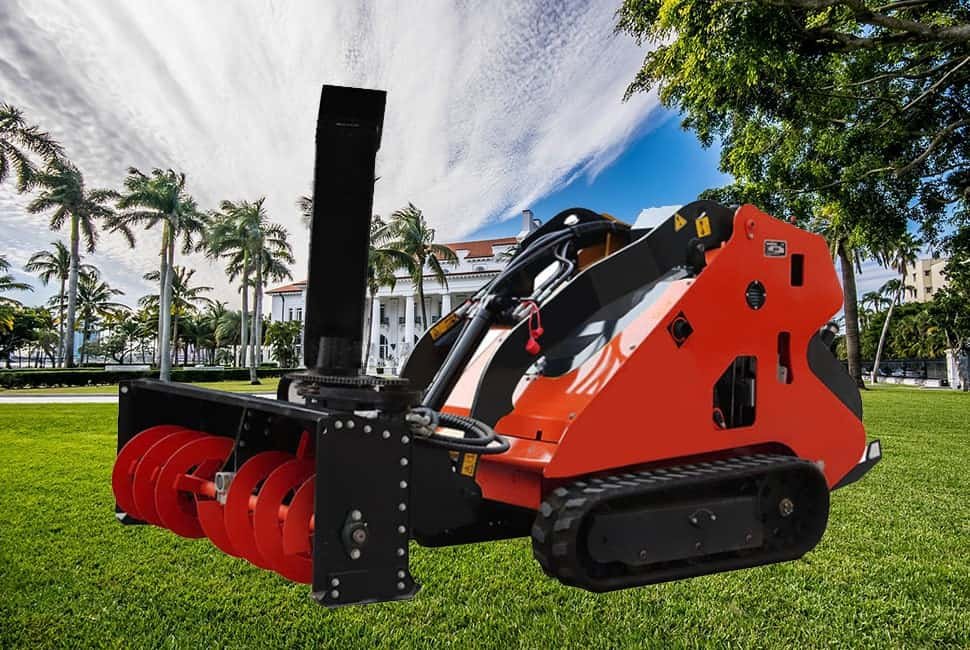Introduction
Wheeled diggers are in high demand because they can easily execute various tasks. These excavators are most commonly used in the construction industry. Their maneuverability enables them to be used in various construction applications. They do not require the additional expenditure of maintaining a complex undercarriage. These machines are stable, powerful, and flexible to handle a wide range of jobs.
Wheel Excavators are also essential in road construction, quarrying, and other fields. Because of the numerous bucket types available, this machine is used to excavate soil, sand, minerals, and other materials. They can also be used for excavating and reinforcing foundation pits, canals and ditches, embankments, landscaping, and other purposes.
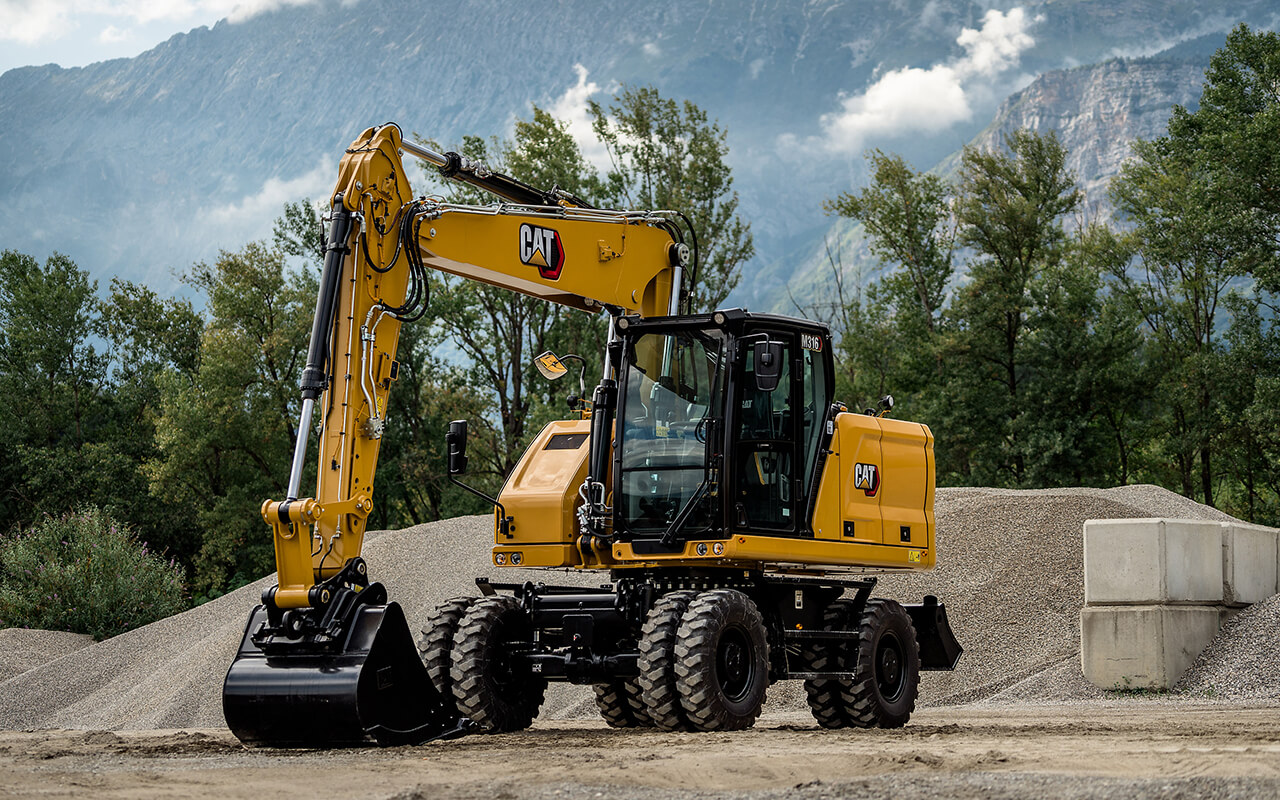
Wheeled Excavators are ideal for loading materials into freight vehicles and are frequently used for trenching and ditch digging. Additional accessories can be fitted to any wheeled excavator boom. Since Wheeled diggers cannot operate on uneven surfaces, the terrain must be considered before starting work.
When buying any machinery, the question of selection criteria arises. So before you choose a wheeled excavator, you must decide on the scope and nature of the work. Here we have presented some valuable information about wheel excavators.
What Is a Wheeled Excavator?
A power-driven, wheeled machine used for excavating tile drain trenches. These excavators are equipped with modern controls. They have high ground clearance and tight space maneuverability. We commonly utilize them for road building and urban development. The wheels provide less stability on uneven terrain than tracked excavators, making them inappropriate for these conditions.
Outriggers allow operators to retain stability when transitioning from a smooth surface to one with more protuberances. Wheeled diggers may attain up to 22 miles per hour while traveling between construction sites on smooth terrain. The flexibility to move around while working is advantageous and can significantly boost productivity.
Applications
- Scrapyard work, construction, material handling, trash management, and utility installation are a few of the applications for Wheeled diggers.
- Some operators use them as substitutes for diggers.
- Small-Wheeled diggers are ideal for small operations in the private sector, such as small construction projects.
- Telecommunications and electricity lines can be installed using wheel excavators.
- Larger types are recommended for tasks on large suburban sites, quarries, and mines.
- Their use in agricultural farming is for the handling of agricultural items.
- They can also be used for digging, loading, and transporting materials.
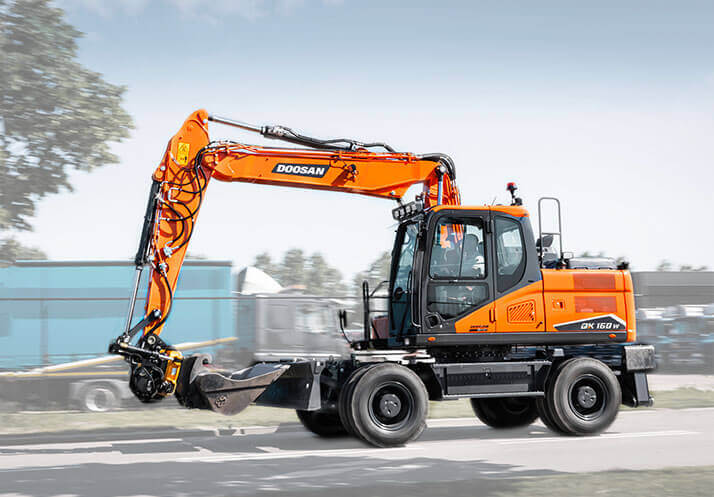
Some Important Facts to Know About Wheeled diggers
Power and Productivity
Wheeled diggers are equally productive and powerful as tracked excavators. One of the disadvantages of a wheeled excavator is that some digging depth is lost due to the wheels’ height difference.
However, when stabilizers are used, they frequently have greater load-bearing capacity than other machines. Because most wheeled machines have a retractable boom, the lifting capacity can be enhanced by changing the boom.
Wheeled Excavator Stability
Regarding the stability of Wheeled diggers, some operators have expressed concern. However, when the outriggers are employed appropriately, a wheeled excavator is as stable as its tracked equivalent. On slopes, a wheeled excavator requires slightly more caution due to its elevated center of gravity. Other than that, they are comparable in terms of stability.
Work Environment
Wheeled diggers are superior to tracked excavators for roadside work because they are more maneuverable. Zero-tail swing vehicles may operate effectively in a single lane. However, they do not have as much traction off-road as tracked machines. Uneven terrain might also be problematic for them. They thrive in urban settings.
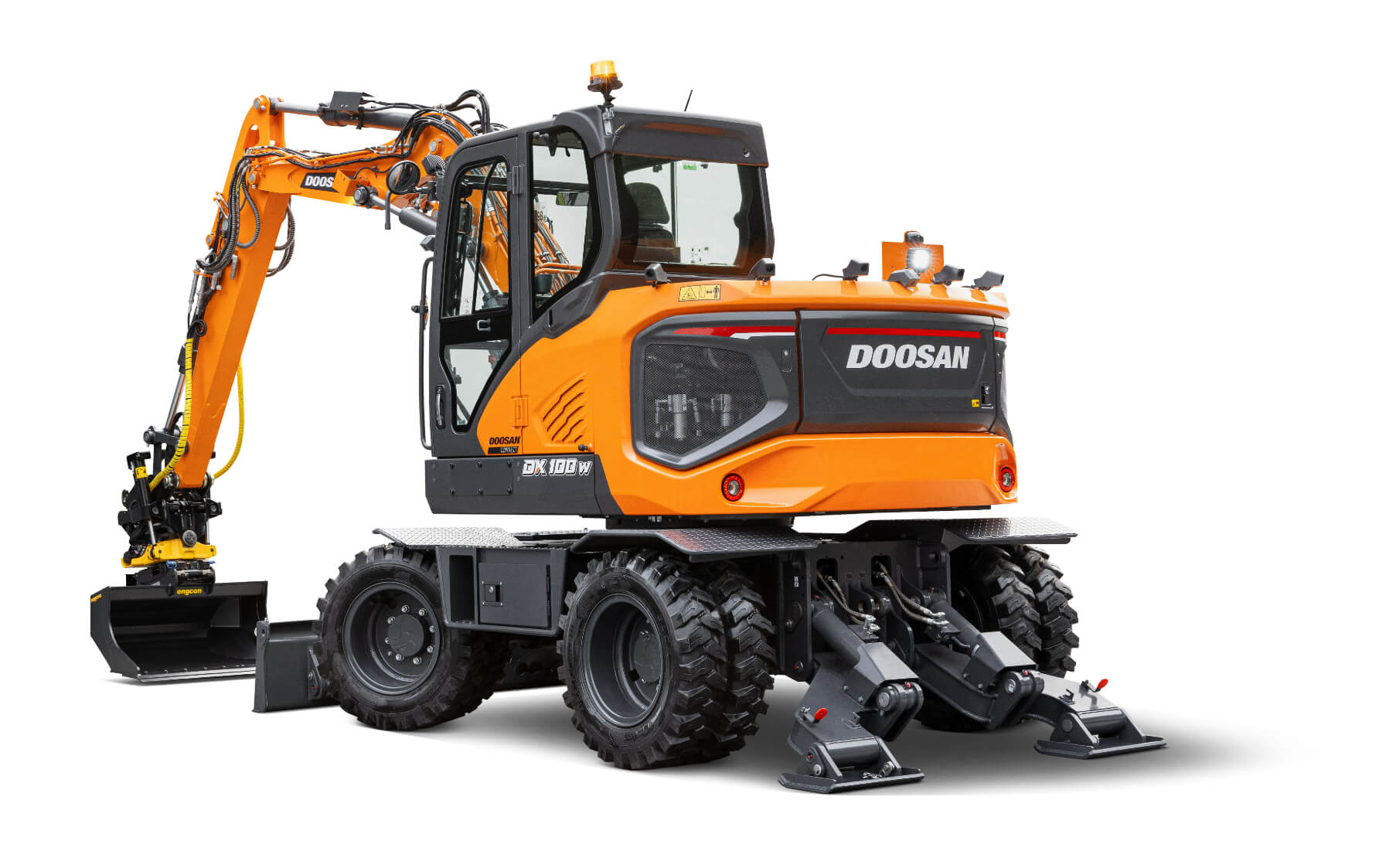
Costs
They are typically more expensive, but they do not incur long-term costs. The maintenance cost of a wheeled excavator is very low compared with the other types. Wheeled excavator sellers encourage potential buyers to evaluate not just the initial cost. The maintenance and operation savings accrued over time are significant considerations.
Why Should You Purchase a Wheeled Excavator?
We’ve already discussed how a wheeled excavator has lower long-term expenditures than a tracked type. There are additional advantages. They may go at such fast speeds that a lowboy is no longer required for short trips. This greatly simplifies the use of a wheeled excavator.
Furthermore, the wheels will not inflict damage to the asphalt that tracks do. It allows an operator to reach higher, delve deeper, and get closer to the machine. This can be extremely useful in allowing operators to navigate up, around, and under obstructions.
They Are Not Just Built for Road Work
Wheeled diggers are suitable for roadside work due to their mobility and agility. Short-swing models may be useful in narrow lanes to reduce traffic interruption. With a simple connection switch, they may quickly be transformed from erecting work to excavating. Furthermore, Wheeled diggers can do much more than just roadside work.
A versatile and portable construction machine can be created by replacing the outrigger with a dozer blade. The addition of a tilt rotator converts it to a lightweight material handler. The machine has a hydraulically raised cab and a grab arm with a grapple. It’s the ideal waste management machine, with a protective container and ventilation system.
You can maneuver around a scrap yard with adequate dexterity. It can transition from a one-piece to a two-piece boom to boost lift capability in confined spaces. A short-swing wheeled excavator also can turn inside one lane of traffic. With this versatility, a wheeled excavator can replace a backhoe in many situations.
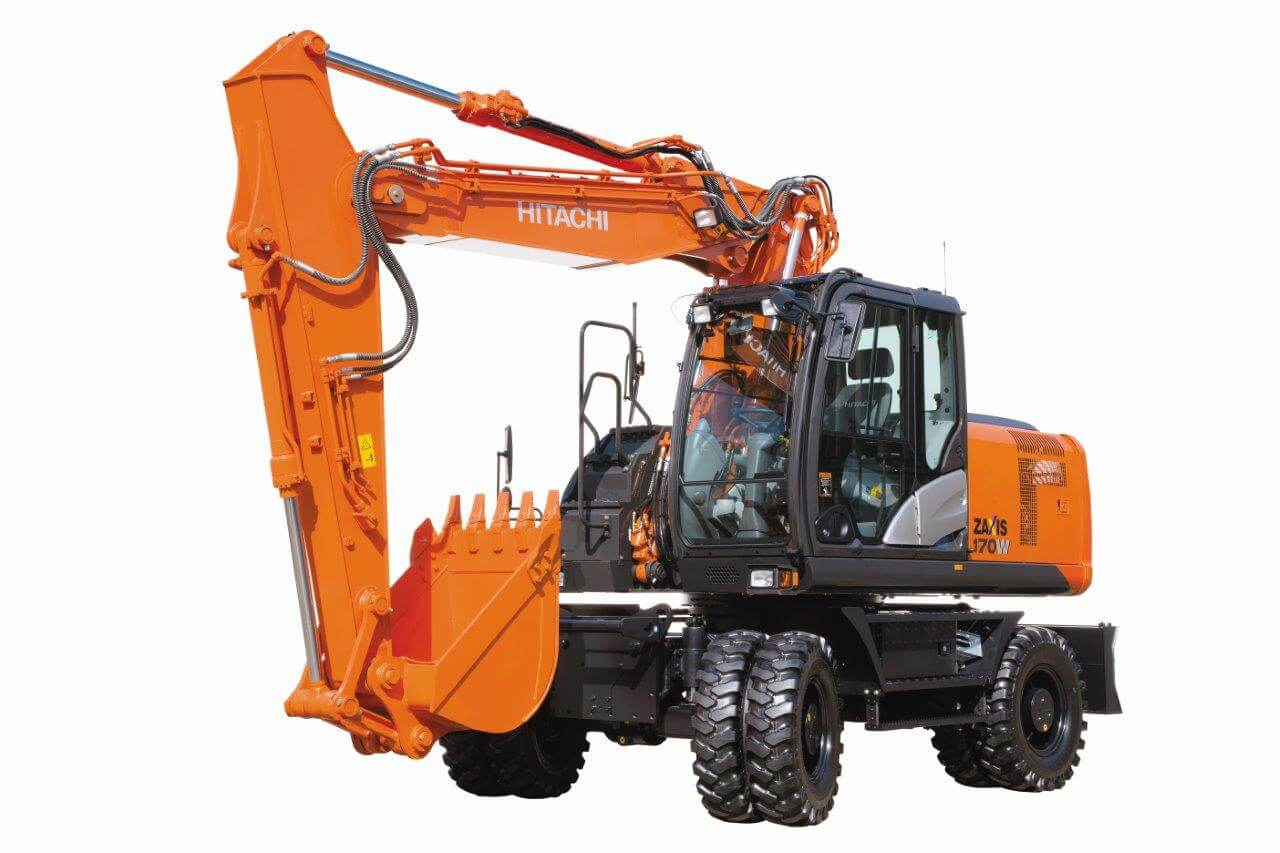
Less Time Spent on Repositioning
The increased flexibility provides more alternatives for dumping material and loading a truck. When trenching, the operator must consider repositioning by merely pushing the pedals. Tilt rotators, which are available on Wheeled diggers, can significantly increase the output. They let the attachment turn 360 degrees. It could also provide a 45-degree tilt on the left or right.
The tilt rotators have a stinger on the rear that can be utilized as a two-finger grapple. This makes them perfect for practical tasks. Take the pipe replacement as an example. Simply Park the machine and just change the angle of the bucket to get the pipe’s top, sides, and bottom. Then turn it to 180 degrees and start to fill the materials.
A 70-degree offset also provides the operator with an unfettered view of the bucket. The increased flexibility provides more options for dumping material and loading a truck. When trenching, the operator must consider repositioning by merely pushing the pedals.
Less Time Consumption on Cleanup and Labor
The versatility and mobility of a Wheeled Excavator allow you to complete jobs with fewer machines in less time. With overrun brakes, they could handle the heavy-weight trailer. This saves time and labor. Wheeled diggers cause less asphalt disruption, saving time and money on cleanup.
Optimal Performance
These well-designed, dependable machines provide you with the optimal performance required for your construction needs. Engineering excellence in these wheeled machines provides you with the best performance. This will add supremacy, controllability, and durability. It can reach digging depth without sacrificing the machine’s performance.
Maneuverability
Wheeled diggers are easy to move around. They have a shorter tail-swing, which lets them work in places that aren’t very big. With the crab steer mode, a single machine can move around very well. The reverse steer option ensures the steering is always facing the right way. With a smaller turning radius, you’ll be able to turn and work on a single-lane road.
They have a front axle that can move +/- 8 degrees to give them better grip and stability on uneven ground. The wheeled excavator is safe because the driver has a good view from the cab.
Serviceability
Wheeled excavator is easy to keep in great condition day after day. The lower structure’s engine, tanks, and other parts make serviceability easy. The working hours for a single service are more than 500 hours for these machines. Telemetric monitoring makes it possible to manage and schedule maintenance.
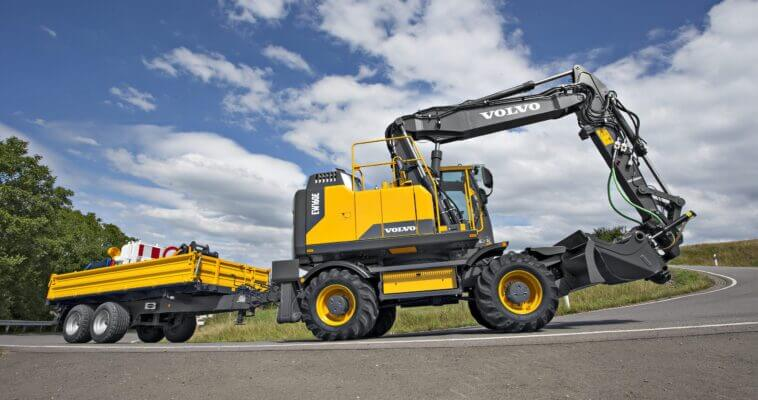
Final Thoughts
Wheeled diggers have various advantages over equivalent machines. Because these devices can easily execute various tasks. They are commonly referred to as multipurpose machines. If you are performing a lot of work in a municipality, you might consider getting a wheeled excavator. Although they are initially more expensive, they are supposed to save money in the long term.
We can help you get the best information on wheel excavators. Our professionals are here to answer any queries you may have. Kindly please contact us if you have any questions about the wheeled excavators.

